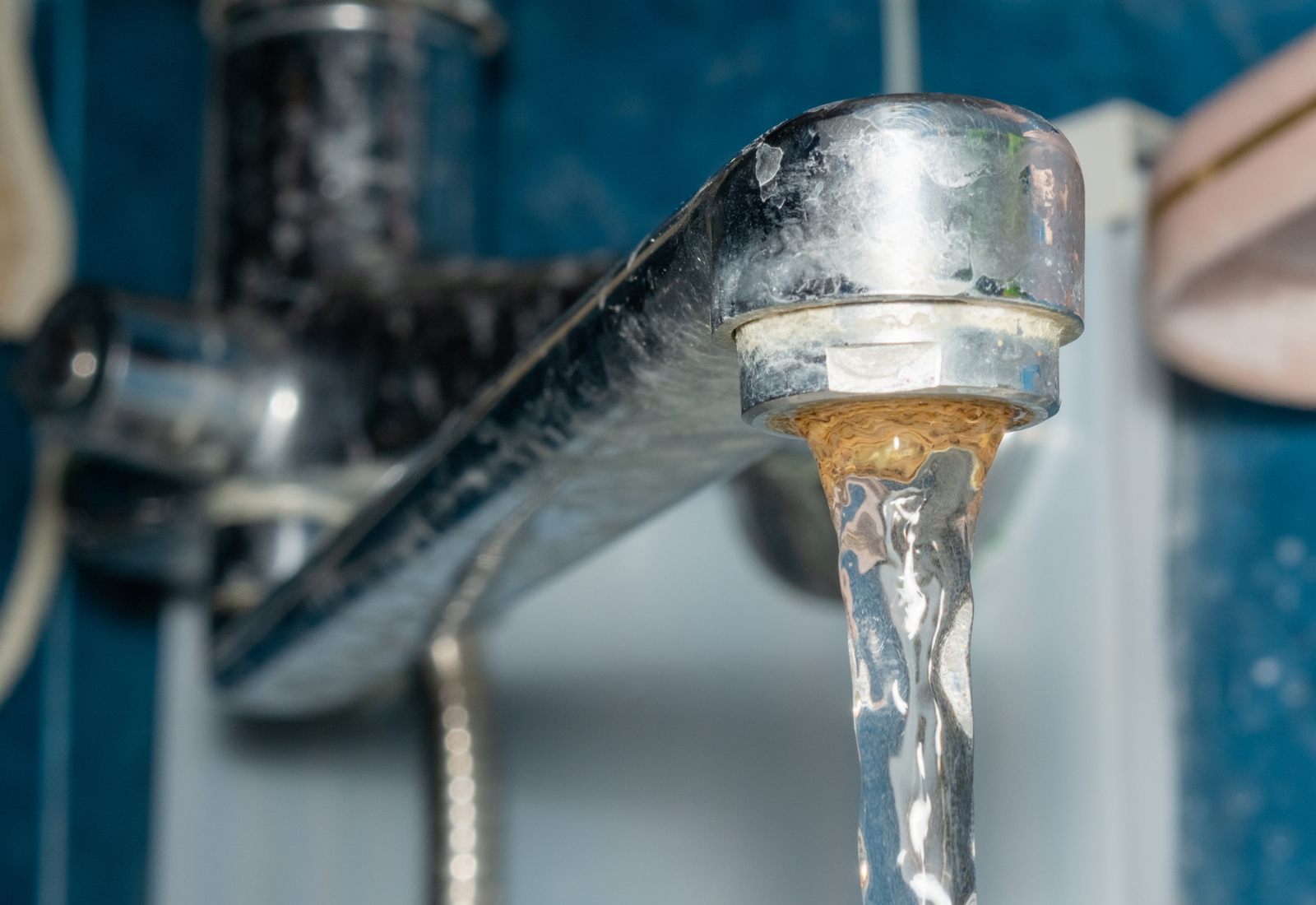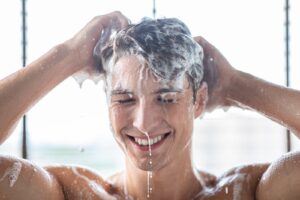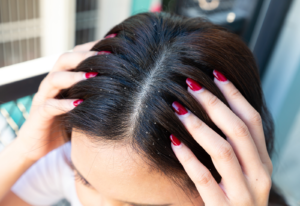From the products we use to our lifestyle habits, our hair’s well-being is subject to a lot of influences. One factor that often goes unnoticed is the quality of water we use. Hard water, characterized by high mineral content, can significantly impact the health and appearance of our hair. Understanding the impact and implementing protective measures is crucial for maintaining vibrant, resilient hair. Read on for more from Eldorado.
Understanding Hard Water
Hard water is water that contains high concentrations of minerals such as calcium, magnesium, and iron. These minerals are naturally present on the earth and dissolve into groundwater as it flows through soil and rock formations. While not harmful to human health, hard water can pose challenges when it comes to hair care. The minerals in hard water can create a variety of issues for hair, ranging from dryness and dullness to brittleness and breakage.
Exposure to Hard Water: When and Where It Happens
Your hair may be exposed to hard water without you even realizing it. Here are some common scenarios where you may encounter hard water and its effects on your hair:
Showering
Perhaps the most significant exposure to hard water for many people is during their daily shower routine. Municipal water supplies in many areas contain high levels of minerals, which can leave residue on your hair and scalp with each wash. This continuous exposure can gradually lead to the buildup of minerals and the associated problems.
Swimming Pools
Chlorinated swimming pools often contain hard water, as the chlorine used to disinfect the water can react with minerals present, resulting in increased hardness.
Washing Hair Accessories
It’s not just direct contact with water during showering or swimming that can expose your hair to hard water. Washing your hair accessories can transfer mineral residue back onto your hair when you use them. Hair accessories often washed in hard water include:
- Brushes
- Combs
- Hair ties
- Headbands
- Hair clips
- Bobby pins
Traveling
When traveling, especially to areas with different water sources than what you’re accustomed to, your hair may be exposed to hard water unexpectedly. Whether staying in hotels, Airbnb accommodations, or visiting friends and family, the water quality can vary, and you may find yourself dealing with the effects of hard water on your hair during your trip.
Washing Hair in Other Settings
Apart from your own home, you may encounter hard water when washing your hair in other settings, such as:
- Gyms
- Spas
- Public restrooms
- Hotels
- Airbnb accommodations
- Friends’ or family members’ homes
- Campgrounds
- Beach showers
The Impact of Hard Water on Hair
Dryness and Frizz
One of the most common effects of hard water on hair is increased dryness and frizz. The minerals in hard water can strip the hair of its natural oils, leaving it parched and prone to frizz and flyaways. This lack of moisture not only affects the hair’s appearance but also its overall health and manageability. Dry, frizzy hair is more difficult to style and can become brittle and prone to breakage over time.
Dullness
Hard water can also cause hair to appear dull and lackluster. The mineral buildup on the hair shaft can create a film that reflects less light, resulting in a dull, lifeless appearance.
Brittle Hair
Over time, exposure to hard water can lead to hair becoming brittle and prone to breakage. The minerals in hard water can weaken the hair shaft, making it more susceptible to damage from styling and environmental factors. Brittle hair not only looks unhealthy but also feels rough and coarse to the touch.
Scalp Issues
In addition to affecting the hair itself, hard water can also impact the scalp. Mineral buildup can clog the pores on the scalp, leading to irritation, itching, and even dandruff. A dry, itchy scalp not only feels uncomfortable but can also contribute to hair loss and thinning.
Tips for Protecting Your Hair
Install a Water Softener
One of the most effective ways to combat the effects of hard water on hair is to install a water softener in your home. A water softener works by removing the excess minerals from the water, resulting in softer, gentler water that is less damaging to hair and skin.
Use Clarifying Shampoo
Regularly using a clarifying shampoo can help remove mineral buildup from the hair and scalp. Look for shampoos specifically designed to remove hard water buildup, and use them once or twice a week. When selecting a clarifying shampoo, consider the following:
- Formulation: Opt for clarifying shampoos formulated with ingredients such as citric acid, chelating agents, or activated charcoal, which effectively remove mineral deposits and impurities from the hair.
- Gentleness: Choose a clarifying shampoo that is gentle enough for frequent use, as using harsh formulas can strip the hair of its natural oils and lead to dryness and damage.
- Moisturizing Properties: Look for clarifying shampoos that contain moisturizing ingredients such as glycerin, aloe vera, or coconut oil to help prevent the hair from becoming overly dry and brittle.
Rinse with Apple Cider Vinegar
An apple cider vinegar rinse can help restore the pH balance of the hair and scalp, while also removing mineral buildup and residue from styling products. Mix equal parts apple cider vinegar and water, and use it as a final rinse after shampooing and conditioning.
Deep Condition Regularly
To combat the dryness caused by hard water, incorporate deep conditioning treatments into your hair care routine. Look for products that replenish moisture and nourish the hair, such as:
- Hydrating masks
- Leave-in conditioners
- Hair oils
- Intensive repair treatments
- Protein-rich hair masks
- Coconut oil treatments
These deep conditioning treatments penetrate the hair shaft, providing essential moisture and nutrients to counteract the effects of hard water.
Protect Your Hair
Minimize your hair’s exposure to hard water by wearing a swim cap when swimming in chlorinated pools or using a shower filter to remove impurities from the water.
Additionally, consider investing in a shower filter for your home shower. These filters are designed to remove impurities and minerals from the water, resulting in softer, gentler water that is less harsh on your hair and skin.
Stay Hydrated
Drinking plenty of water is not only essential for overall health but also plays a crucial role in maintaining the hydration levels of your hair. Proper hydration from within helps support the health of your scalp and hair follicles, promoting optimal growth and condition. Aim to drink at least eight glasses of water a day.
Additionally, staying hydrated can help regulate the production of natural oils in your scalp, preventing excessive dryness or oiliness. Incorporate water-rich foods into your diet, such as:
- Cucumber
- Watermelon
- Strawberries
- Oranges
- Spinach
- Tomatoes
These foods not only contribute to your overall hydration but also provide essential vitamins and minerals that support healthy hair growth and maintenance.
In Summary
The impact of hard water on hair can be significant, leading to dryness, dullness, and brittleness. However, by understanding the effects of hard water and implementing proactive measures, you can protect your hair and keep it looking healthy and vibrant. From installing a water softener to using clarifying shampoos and deep conditioning treatments, there are plenty of steps you can take to mitigate the damage caused by hard water.
Contact Eldorado for The Best Hair Restoration Services in Maryland
For those seeking professional assistance with hair restoration and care, Eldorado offers a range of expert hair restoration services in Maryland, including hair transplants, human hair wigs, and much more. Contact us today to learn more about how we can help you achieve your hair goals.





